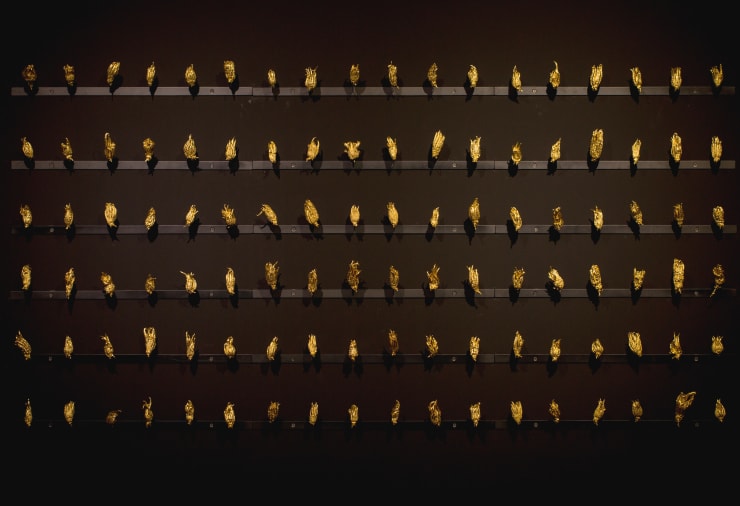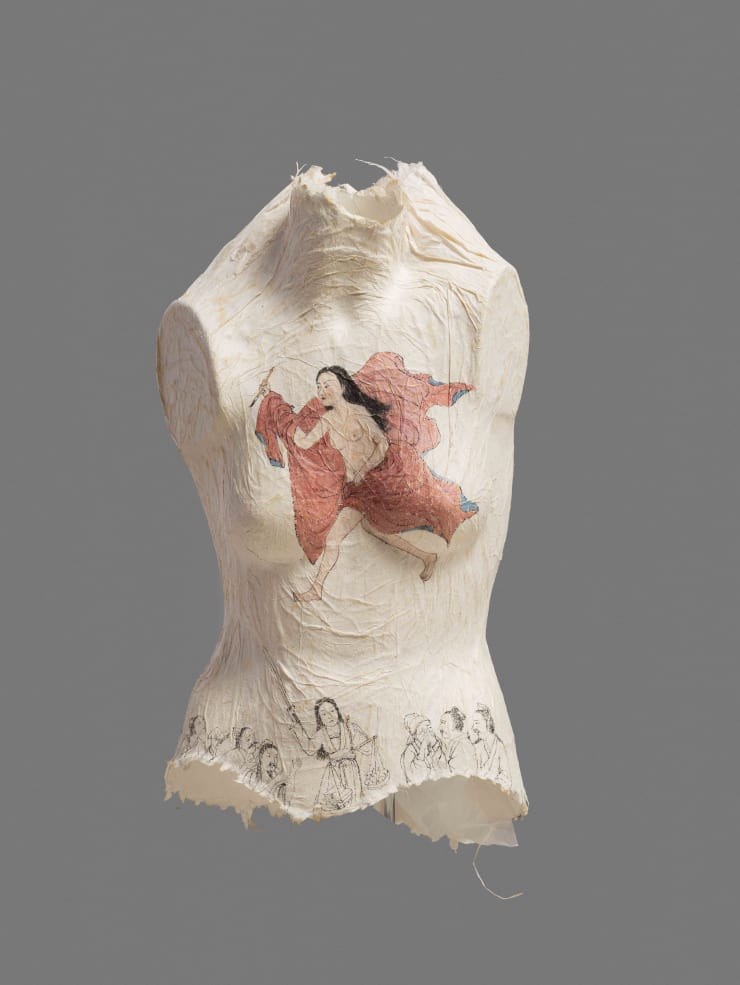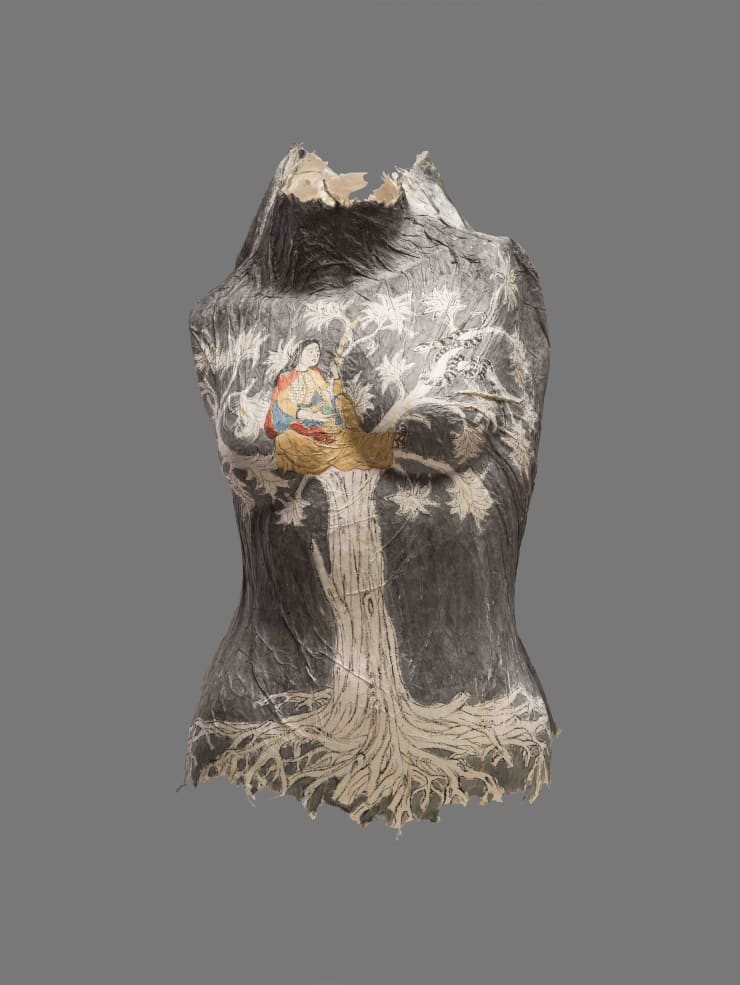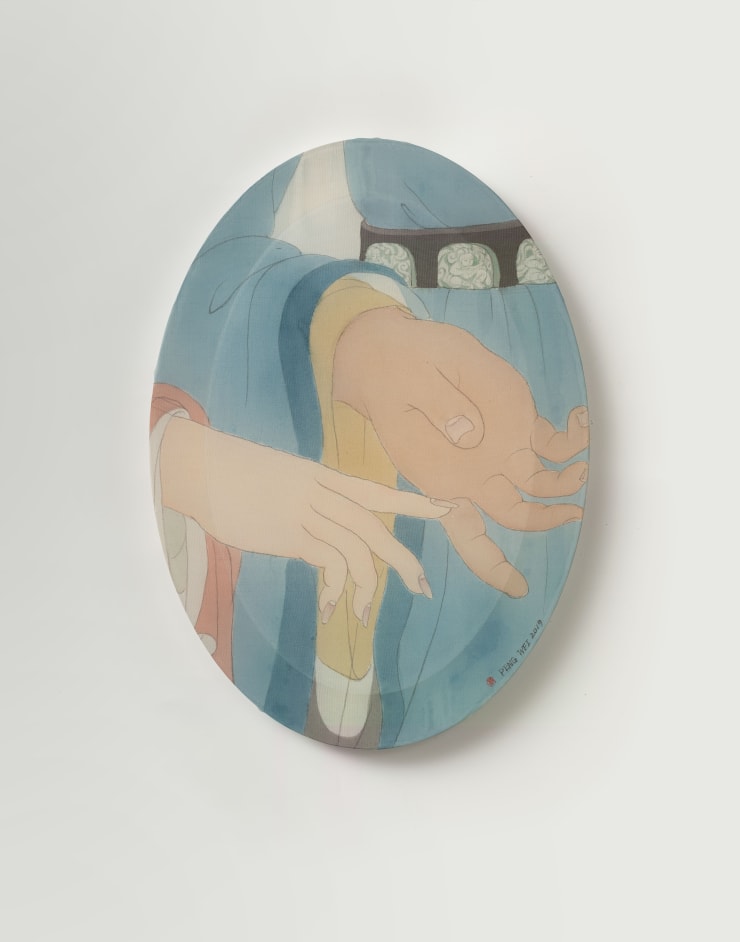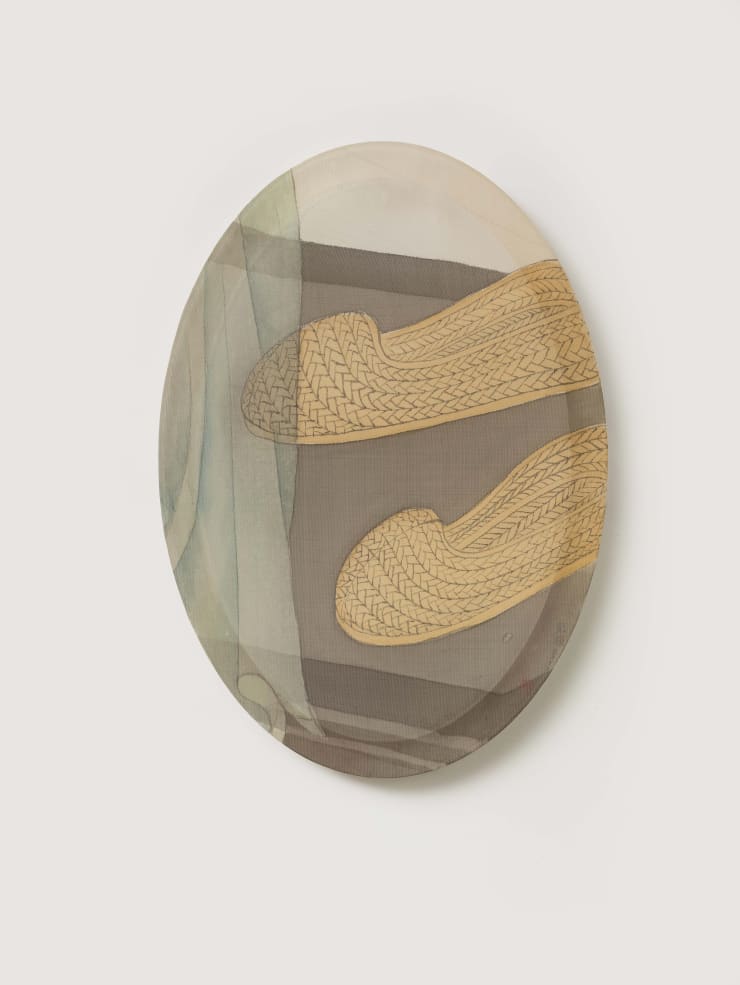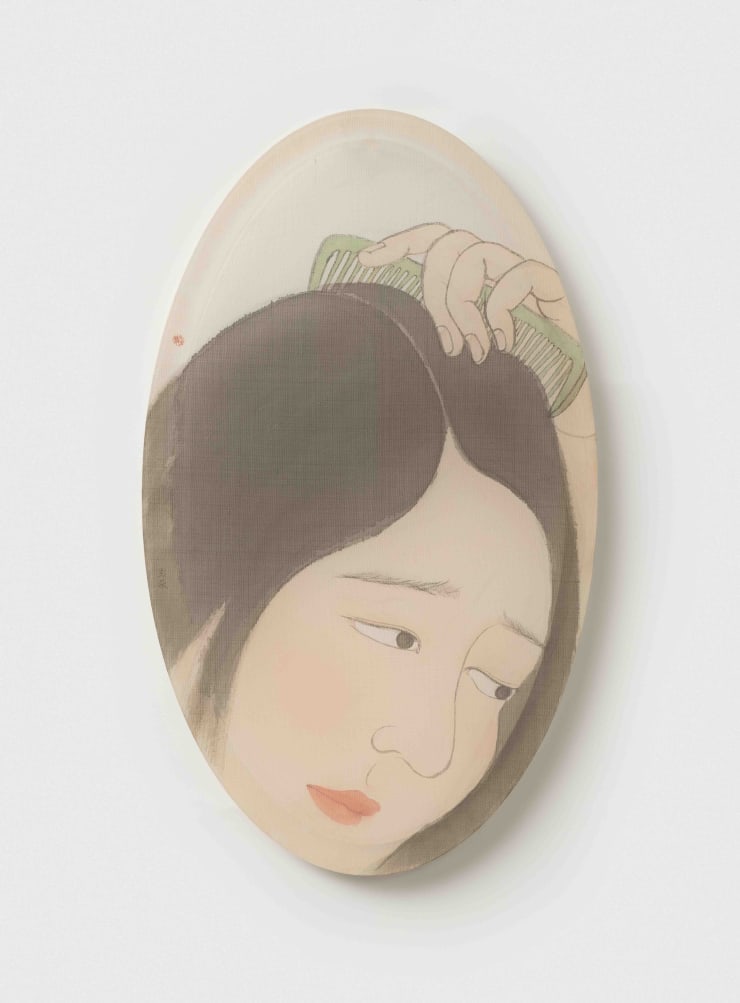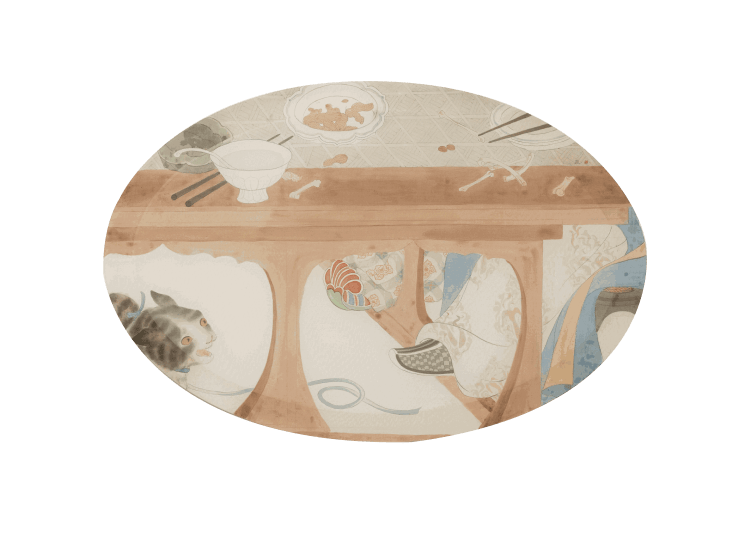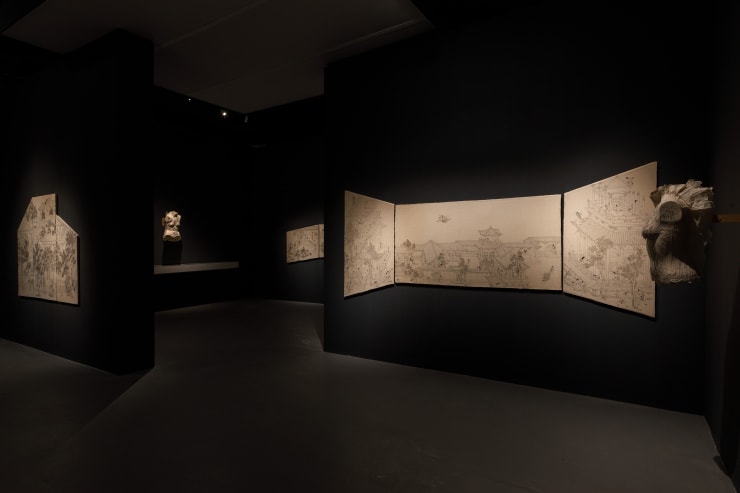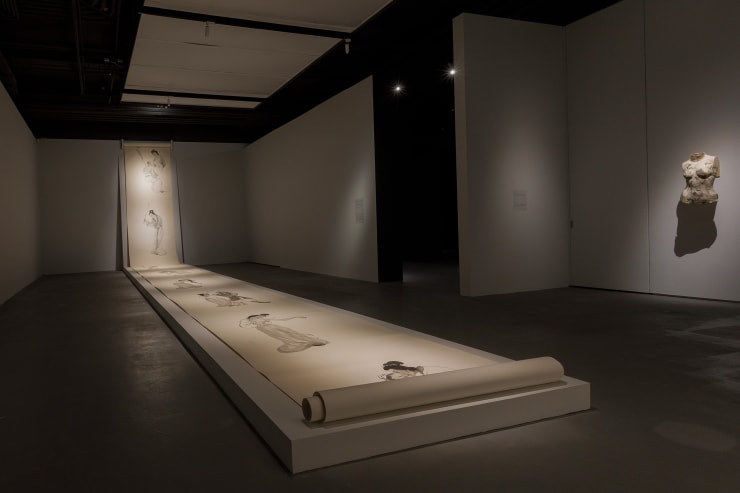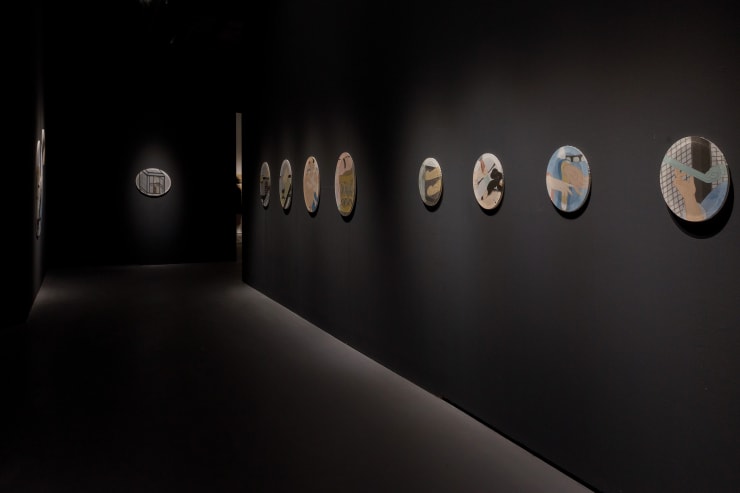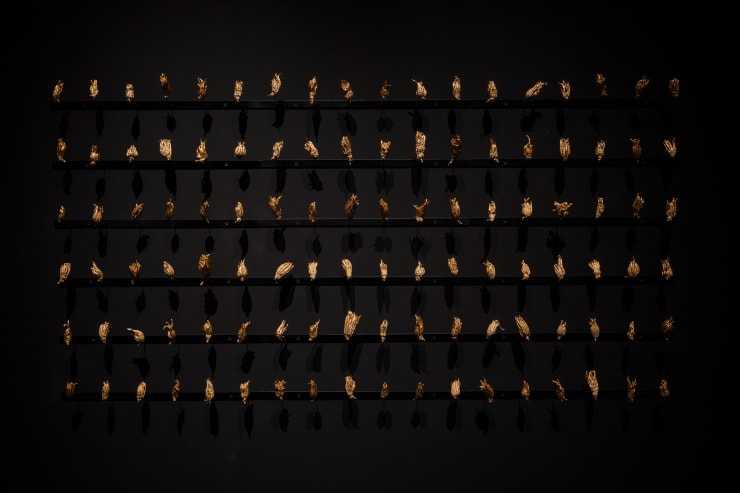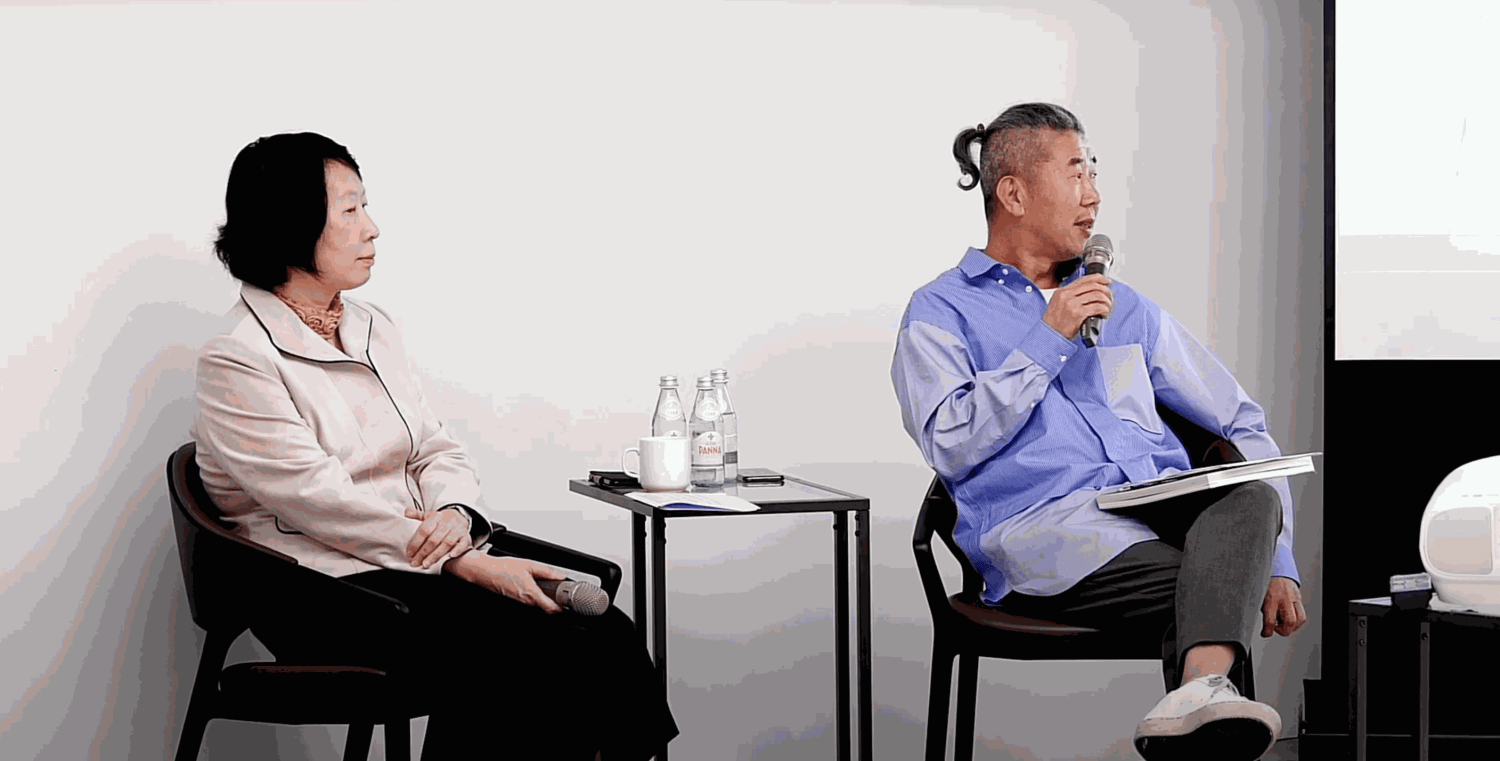Feminine Space: Peng Wei Solo Exhibition
Feminine Space: Peng Wei Solo Exhibition
- Press Release
- Works
- Installation Shots
- Videos
- Essays
-
Share
- X
- Tumblr
Dates
5 DECEMBER 2020 - 30 JANUARY 2021
Reception
5 DECEMBER, 4:30 p.m.
Tina Keng Gallery B1, No.15, Ln. 548, Ruiguang Rd., Neihu Dist., Taipei 114, Taiwan
One of the prominent contemporary artists in China, Peng Wei is known for her paintings of landscapes and Taihu rocks, of Western faces rendered in Asian mediums, of delicate embroidered shoes and robes. Through her meticulous brushwork and application of ink across flax paper, cotton paper, or silk, an abiding spirit of centuries-long tradition enlaces her contemporary interpretation. The artist examines Chinese culture through a rigorous scrutiny of literati imagery that has in recent years gravitated toward femininity in a dialectical approach to gender and culture.
The image of the female in different ancient Chinese narratives elicits a foreign feeling in Peng Wei that disaccords with her idea of women. Stunned, confused, and bewildered, she finds the portrayal of the female — whether the exemplars in Paragons of Feminine Virtue by Ming-dynasty thinker Lv Kun, or the fox spirits and female ghosts in Strange Tales from the Chinese Studio by Qing-dynasty novelist Pu Songling — to be indistinguishable products of the male gaze that could be anonymously reproduced to reinforce patriarchal values. Peng Wei isolates these images from their original contexts, and transforms them into new narratives where the posture and the body of these women educes a strange feeling that becomes tacitly amplified. The body of these women reemerges as a new tale, or a spectacle in and of itself. The dissimilitude, misappropriation, and vacancy among these images of women create interstices which the artist adroitly leverages into a singular, feminine space by recontexualizing the parables or spectacularizing gender.
The 50-meter-long Old Tales Retold (2019) decontextualizes the exemplars from Ming-dynasty thinker Lv Kun’s Paragons of Feminine Virtue through freehand brushwork that brings these women to life, highlighting the female body. “The One in My Dreams” series (2020) is inspired by female ghosts from Chinese folklore. Disengaged from the original context, the painting is centered on the manifestation of the ghostly spirit — the female apparition turns into a spectacle. The juxtaposition of the imagery and Western authors’ letters embodies the artist’s attempt to recontextualize the disoriented persona.
By simultaneously distancing herself and retaining her agency, the artist conjures a kaleidoscopic microcosm of narrative possibilities in the “Seven Nights” series. The series consists of seven sets, each a portrayal of a courtyard and the events that went on therein which she once saw in her dreams. The skewed and scaled contours of the painting not only echo the architecture in the courtyard, but also evoke a three-dimensional illusion that allows the viewer to see past the invisible façade of the buildings. Inspired by “Seven Nights,” the “Peek” series attests the artist’s scrutiny of details, where carefully selected narratives are ingeniously magnified.
The “Hi-Ne-Ni” and “This Is Her” series represent two ends on Peng Wei’s artistic spectrum. The former comprises paper-plastered female mannequin busts, the latter a constellation of small paintings in European antique mirror frames. The female body in “Hi-Ne-Ni” morphs into a spectacle as much as an eventful space where inscrutable tales unfold, while “This Is Her” exudes a charm that permeates each delicate mirror frame — once vacant, awaiting a special painting: Peng Wei fills these frames with unique works that navigate feminine sensibility.
Feminine Space serves as a chance for the viewer to see not merely the artist’s sophisticated application of ink, but also her perspective on femininity. Peng Wei’s contemplation on what it means to be female, as well as her depiction of women rendered in varying mediums also privileges the female vantage point. Her stance is less an insouciant look from afar than an earnest gaze that pierces through the ancient works of Chinese literature, as she wields her paintbrush adamantly across the paper. This feminine gaze ultimately returns the prerogative of narrative to women, at the same time, hinting at another way to reimagine feminine aesthetics in contemporary society.
With a master’s degree in philosophy from the Nankai University in Tianjin, Peng Wei is a Beijing-based artist, whose work combines classical Chinese painting and subjects with altered traditional and contemporary materials. She has focused much of her work on garments and embroidered shoes. In recent years, she has expanded her practice by applying traditional Chinese paintings onto three-dimensional objects and creating installation art, without losing the meaning and proficiency of the traditional Chinese works.
VIEWING ROOM
-
 彭薇, 七個夜晚:第一夜, 2017
彭薇, 七個夜晚:第一夜, 2017 -
 彭薇, 七個夜晚:第七夜, 2019
彭薇, 七個夜晚:第七夜, 2019 -
 彭薇, 七個夜晚:第三夜, 2018
彭薇, 七個夜晚:第三夜, 2018 -
 彭薇, 七個夜晚:第四夜, 2018
彭薇, 七個夜晚:第四夜, 2018 -
 Peng Wei, Material World, 2017–2019
Peng Wei, Material World, 2017–2019 -
 Peng Wei, Hi-Ne-Ni I, 2017
Peng Wei, Hi-Ne-Ni I, 2017 -
 彭薇, 我就在這裡之九, 2019
彭薇, 我就在這裡之九, 2019 -
 Peng Wei, Hi-Ne-Ni X, 2019
Peng Wei, Hi-Ne-Ni X, 2019 -
 Peng Wei, Hi-Ne-Ni XI, 2020
Peng Wei, Hi-Ne-Ni XI, 2020 -
 Peng Wei, Hi-Ne-Ni XII, 2020
Peng Wei, Hi-Ne-Ni XII, 2020 -
 Peng Wei, Peek–13, 2019
Peng Wei, Peek–13, 2019 -
 彭薇, 窺-15, 2019
彭薇, 窺-15, 2019 -
 Peng Wei, Peek–2, 2019
Peng Wei, Peek–2, 2019 -
 Peng Wei, Peek–24, 2019
Peng Wei, Peek–24, 2019 -
 Peng Wei, Peek–25, Green Snake, 2019
Peng Wei, Peek–25, Green Snake, 2019 -
 Peng Wei, Peek–26, Ruiyi, 2019
Peng Wei, Peek–26, Ruiyi, 2019 -
 Peng Wei, Peek–3, 2019
Peng Wei, Peek–3, 2019 -
 Peng Wei, Peek–34, 2020
Peng Wei, Peek–34, 2020 -
 彭薇, 窺-18, 2019
彭薇, 窺-18, 2019
-
 彭薇, 七個夜晚:第一夜, 2017
彭薇, 七個夜晚:第一夜, 2017 -
 彭薇, 七個夜晚:第七夜, 2019
彭薇, 七個夜晚:第七夜, 2019 -
 彭薇, 七個夜晚:第三夜, 2018
彭薇, 七個夜晚:第三夜, 2018 -
 彭薇, 七個夜晚:第四夜, 2018
彭薇, 七個夜晚:第四夜, 2018 -
 Peng Wei, Material World, 2017–2019
Peng Wei, Material World, 2017–2019 -
 Peng Wei, Hi-Ne-Ni I, 2017
Peng Wei, Hi-Ne-Ni I, 2017 -
 彭薇, 我就在這裡之九, 2019
彭薇, 我就在這裡之九, 2019 -
 Peng Wei, Hi-Ne-Ni X, 2019
Peng Wei, Hi-Ne-Ni X, 2019 -
 Peng Wei, Hi-Ne-Ni XI, 2020
Peng Wei, Hi-Ne-Ni XI, 2020 -
 Peng Wei, Hi-Ne-Ni XII, 2020
Peng Wei, Hi-Ne-Ni XII, 2020 -
 Peng Wei, Peek–13, 2019
Peng Wei, Peek–13, 2019 -
 彭薇, 窺-15, 2019
彭薇, 窺-15, 2019 -
 Peng Wei, Peek–2, 2019
Peng Wei, Peek–2, 2019 -
 Peng Wei, Peek–24, 2019
Peng Wei, Peek–24, 2019 -
 Peng Wei, Peek–25, Green Snake, 2019
Peng Wei, Peek–25, Green Snake, 2019 -
 Peng Wei, Peek–26, Ruiyi, 2019
Peng Wei, Peek–26, Ruiyi, 2019 -
 Peng Wei, Peek–3, 2019
Peng Wei, Peek–3, 2019 -
 Peng Wei, Peek–34, 2020
Peng Wei, Peek–34, 2020 -
 彭薇, 窺-18, 2019
彭薇, 窺-18, 2019
Related artist
This website uses cookies
This site uses cookies to help make it more useful to you. Please contact us to find out more about our Cookie Policy.




